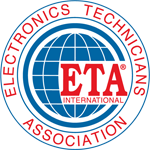Expect a bright future with an education in electronics technology.
Major Details
 Electronic equipment is everywhere: in our homes, businesses, factories, vehicles. Continuing advances in electronics have made possible the sweeping technological changes we see all around us. That's why there will always be a high demand for individuals with the training to build, design, and maintain electronic devices.
Electronic equipment is everywhere: in our homes, businesses, factories, vehicles. Continuing advances in electronics have made possible the sweeping technological changes we see all around us. That's why there will always be a high demand for individuals with the training to build, design, and maintain electronic devices.
When you earn the 20 credit Electronics Lab Assistant certificate at Minnesota State College Southeast in Winona, you will learn both the theory and practical aspects of electronics. Course work and hands-on lab experience cover:
- DC and AC Electricity
- Digital Electronics
- Electronic Fabrication Technology
- Solid State Devices
With this certificate, graduates may work in repair, maintenance and installation of electronic devices in a variety of settings: industry, business, medical, education, and more. You may find employment working for service companies, distributors, manufacturers, or repair shops.
A member of the Electronics Technician Association (ETA)
Apply now for admission to Minnesota State College Southeast
Cluster/Pathway
Career Field: Engineering, Manufacturing & Technology
Cluster: Science, Technology, Engineering & Mathematics
Pathway: Engineering & Technology
Download the Program Plan
Courses
1) 1000 level (minimum) General Education courses required unless specified.
GENERAL EDUCATION REQUIREMENTS
Math Requirement
Choose one 2-credit - or greater - Math course. MATH 1025 Algebra is suggested.
2 cr
ELEC1202
Introduction to DC Electricity
This course covers the general information, theory, and problem-solving techniques required for an analysis of DC circuits with emphasis on the meter measurements, current flow, and voltage division. (Prerequisite: Proficient in basic math) (2 credits: 1 lecture/1 lab)
Download the Course Outline
2 cr
ELEC1204
Introduction to AC Electricity
This course covers the general information, theory, and problem-solving techniques required for an analysis of AC circuits. Topics include: AC waveforms, oscilloscope operation, meter measurements, and AC vs. DC comparisons. (Prerequisites or Concurrent: ELEC1202, proficiency in basic math)
(2 credits: 1 lecture/1 lab)
Download the Course Outline
2 cr
ELEC1212
Digital Electronics I
Students will learn about basic digital gates and how to use those gates to develop combinational logic circuits. Experimentation with digital circuits will aid in the reinforcement of the fundamental digital concepts. (Prerequisite: None) (3 credits: 2 lecture/1 lab)
Download the Course Outline
3 cr
ELEC1214
Electronic Fabrication Technology
In this course students will study the proper techniques necessary for placement of components on PCB's, with emphasis on THM and SMT technologies. Proper use of standard and specialized tools and equipment will be demonstrated. Soldering techniques will be critiqued in accordance with IPC-A-610 and J-STD-001 soldering standards. (Prerequisite: None) (2 credits: 1 lecture/1 lab)
Download the Course Outline
2 cr
ELEC1250
Introduction to Solid State
A theoretical understanding of solid-state devices, which includes diodes, bipolar transistors, field effect transistors and others, and their operation in both DC and AC circuits will be covered. Analysis of these operations will be demonstrated through the lab exercises and proper use of test equipment. Proper biasing of solid-state devices is stressed. (Prerequisites: ELEC1202, ELEC1204, ELEC1209) (4 credits: 2 lecture/2 lab)
Download the Course Outline
4 cr
Total Credits Required for this Major: 20 Credits
Estimated Costs for this Major
| Approximate Tuition/Fees: | $4,256 |
|---|
| Minimum Tool Cost: | N/A |
|---|
| Books/Supplies: | $895 |
|---|
| Estimated Total: | $5,151 |
|---|
Career Opportunities
-
Electronic System Installation/Maintenance
- Manufacturing System Installation/Maintenance
- Electronic Engineering Technician
- Computer Equipment Repair/Maintenance
- Computer Network Installation/Maintenance
- Wireless Communication Systems Installation/Maintenance
- Technical Field Service
- Technical Sales
- Security System Technician
- Residential Electronics Systems Integrator
Career Information
Use the MN DEED Career and Education Explorer Data Tool to learn about wages, job growth, and much more in this career field.
Outcomes
Program graduates will be able to:
- Use knowledge and skills to analyze, troubleshoot, measure and/or program systems and devices used in the Electronics industries.
- Repair systems and equipment by applying logic and knowledge to solve complex problems.
- Demonstrate the use of software, programming, and interfacing to troubleshoot micro and personal computers.
- Demonstrate an ability to communicate effectively.
- Demonstrate an ability to apply knowledge of mathematics, science, and engineering to the analysis of electronic problems.
- Apply acquired skills and learn new skills by engaging in lifelong learning.
- Work as a productive and responsible team member.
- Function with a respect for diversity and knowledge or professional, social, and global issues.
Highlights
- Broad spectrum of career opportunities
- Current technology is implemented in the curriculum
- 50% of class work is hands-on
- Our instructors stay current in the electronics field
- Electronic technicians play a critical role in technology
Instructors
-
Marc Kalis
-
Marc Kalis received his Electronics Diploma from Austin Technical Institute (Riverland Community College, Austin Campus) and currently holds a license in Electronics Technology for the State of Minnesota. Marc has experience in a variety of electronic areas which include but are not limited to: medical equipment repair, industrial controllers, networking, computers and mobile electronics. He is an IPC-A-610 Class “A” Instructor (solder joint inspection), a J-STD-001 class “A” Instructor (Solder Application Specialist, and a Mobile Electronics Certified Professional.